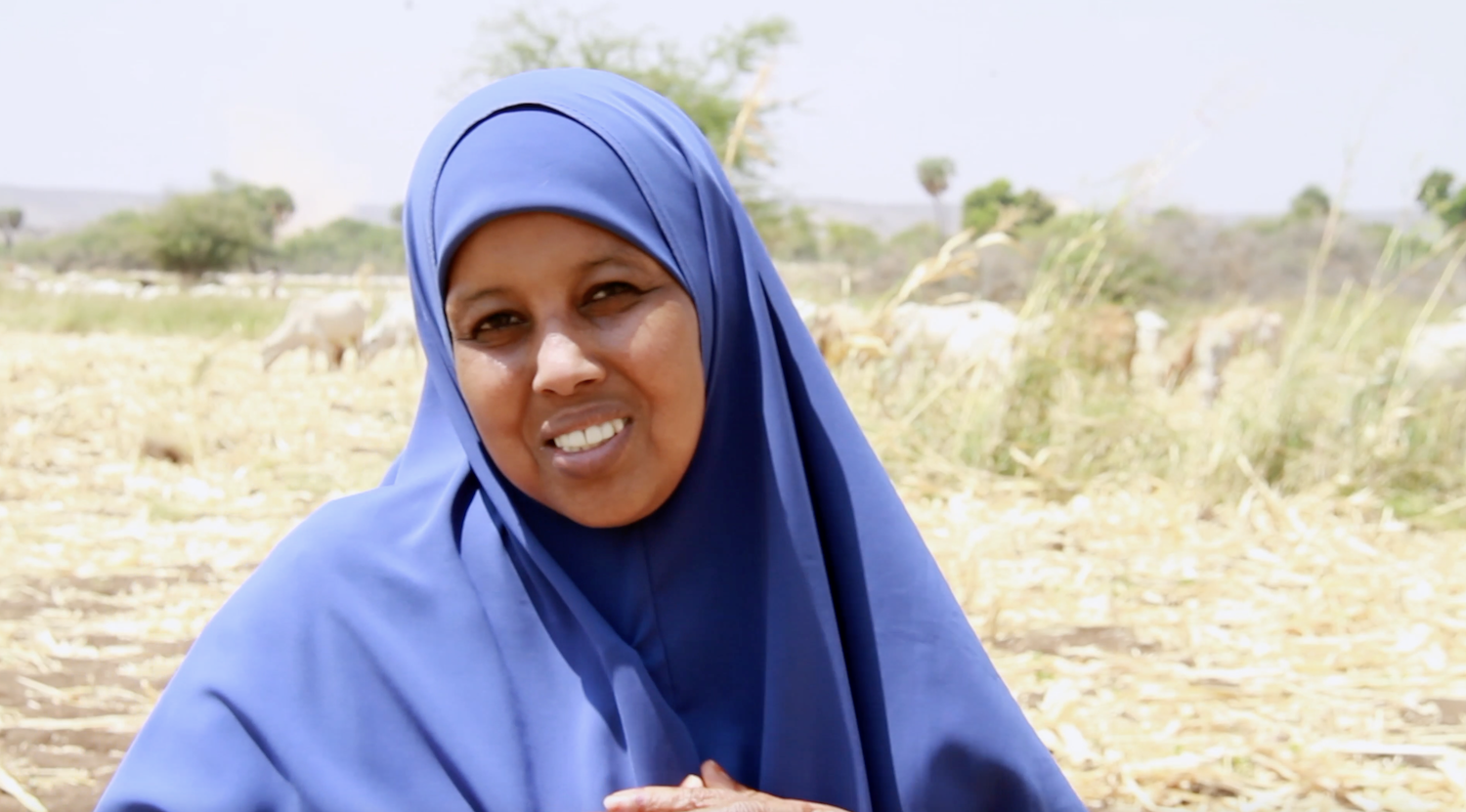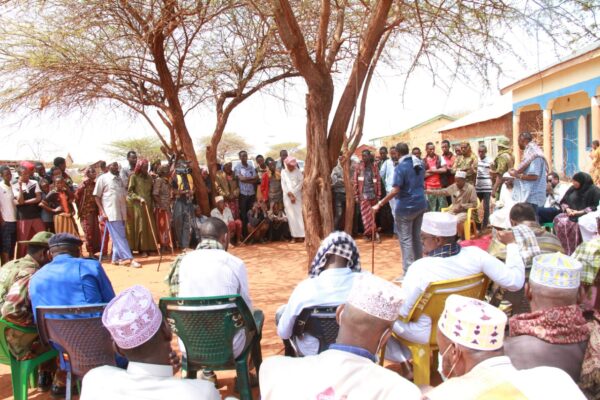A journey of reconciliation and hope through farming in Yabicho, Mandera County, Kenya

Inter-clan disputes between the Degodia and Garre tribes of Mandera County plagued the period from 2010 to 2015. This conflict claimed countless lives and led to livestock raiding and property destruction. In villages like Malkaruqa, Garse, and Yabicho, Garre farmers found themselves uprooted from their ancestral lands, their once-lush irrigation farms reduced to ruins, and their mango trees that had once adorned the landscape mercilessly cut down. Similarly, the Degodia communities were displaced from Banisa and Takaba, and each clan retreated to their own clan territories.
Despite this despair, the National Cohesion and Integration Commission (NCIC) and Interpeace, recognising the urgent need for a ceasefire, initiated inter community dialogues within the conflict between the Garre and Degodia clans. These dialogues brought together a diverse group of individuals, under the guidance of a remarkable woman named Zahara Bashir Ali. Zahara, a member of the Board for the Network for Peace, Cohesion, and Heritage (NEPCOH) and an active participant in Interpeace's Kenya Programmes working group, processed a vision that transcended the conflict. When the Degodia clan proposed using her farm as a meeting ground for the two communities, Zahara saw an opportunity to unite the two communities.
The severe drought that afflicted the area and heightened tensions between the clans served as one of the initiatives' driving forces. Zahara realised that her farm, once abandoned and neglected, could become a catalyst for change. With determination in her heart, she accepted the proposal, opening her land to both the Garre and Degodia farmers. Zahara’s unwavering belief in the power of unity became the beacon of hope that the villagers yearned for. The neglected land was meticulously restored, and the once-destroyed irrigation system was painstakingly resurrected.

Both clans have agreed on a set of rules that govern the management of the farm. These rules encompass various aspects, ranging from the fair distribution of the farm to ensuring peaceful coexistence and providing protection against external threats. A committee, selected through mutual agreements, is responsible for overseeing the farm's operations, which is shared equally between the Garre and Degodia clans. To maintain consistency in measurement, the committee employs one person's foot as the standard unit of length, ensuring that no other individual measures the farm. Each member retains ownership of the produce they cultivate on the farm.
However, the collaboration has faced certain challenges, including limited farm space and the strain on key personnel involved in the day-to-day farm operations. Despite these obstacles, the farm currently accommodates approximately 53 residents. Efforts are underway to sustain and expand the collaboration in the future by institutionalising engagement and replicating the model in other areas such as Qalicha, Rhamu Dimtu, Garse and Malka Ruqa.
The collaboration has brought numerous benefits to both communities. It has ensured access to food, provided protection against external aggression, and fostered a close working relationship with local chiefs from both clans. Furthermore, its impact has extended beyond the borders of Yabicho. Displaced families on the Ethiopian side, who found themselves caught in the crossfire of the Garre-Degodia conflict, have regained hope through their involvement in accessing farming activities. The unity forged through this collaboration has rippled across vast distances, healing long-standing wounds.
Adopting best practises for inter-community collaboration in the creation and management of sustainable farming activities is crucial. These practises include trust-building, mobilisation of peace-minded farm owners, developing rules of engagement, crop management, creating agribusiness awareness, accessing markets and irrigation facilities, and developing entrepreneurship skills among farmers.
"This collaborative effort has the potential to impart invaluable lessons on resilience, social cohesion, and interdependence to other communities. The NCIC/Interpeace peacebuilding programme is looking to expand this farming initiative to Badasa and Songa villages in Marsabit," says Interpeace’s Kenya Country Representative, Hassan Ismail on the pressing need to replicate similar projects.
"Implementing similar projects in neighbouring villages can nurture a sense of interdependence between the Garre and Degodia clans in Mandera, contributing to a community-led process of reconciliation and post-conflict reconstruction, all while promoting sustainable farming practises."
